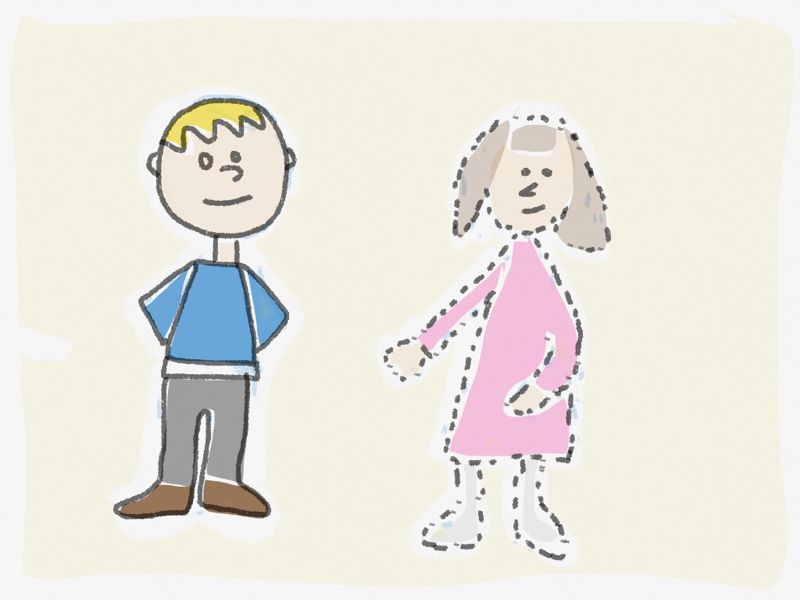61

I wonder, as an adult, what it would be like to have an actual friend. When you grow up, friendship becomes difficult or impossible. Everybody has significant others, spouses, kids, pets. They are all more important than you.
I’m no Elwood P. Dowd and I don’t have a giant invisible rabbit pal named Harvey. I do, however, have an imaginary friend. No, I’m not crazy. I know my friend isn’t real. But she doesn’t need to be.
Here’s the way I see it. Parts of the world are intractable. Physics. The nature if the physical world. Then there’s people. They can be moved but not always, not easily, never reliably. People are trouble. If you like gambling, you can put your faith in them.
I’m not a man of faith. I live in the real world, the real physical world, because it’s unavoidable. But the world of people? Unnecessary and just plain not worth it.
That’s why I’ve got Laurie. No, I know what you’re thinking. But actually, we are just friends. That’s the way I want it. It’s simpler that way even with an imaginary woman. But it’s great. I think I may be in love. Platonic love.
Do you remember what it’s like to actually have a conversation? I mean, an actual conversation. Not a verbal duel to “best” someone. Not sly put downs or sneaky seductions. Not talk designed to get something. I mean a conversation to think, to contemplate, to make observations and perhaps tentative, but only tentative, conclusions. Something like a college bull session but with less alcohol and more maturity.
That’s what it’s like talking with Laurie. Deep. Introspective. Stimulating. Almost addictive.
Crazy, you say? You see me talking to myself and you’ve decided I’m nuts. Not so fast.
Take a good look at yourself first before drawing conclusions about me. You might be surprised. You might learn something that you never suspected. And that is: you are kind of crazy. We all are. Me, too. But I’m crazy in a different way from you and pretty much everyone else. Listen up.
You accept a bunch of ridiculous and often damaging things as true, indisputable and absolutely normal. War. Work. Heartbreak. All nonsense.
You’ve never heard a credible excuse for war, just familiar excuses, excuses that become accepted by you and everyone through repetition. But if you think, these excuses make no sense. Can you even remember the “reasons” you were given for each war? They sound good (well, some do) but they make no sense.
You work—if you are lucky—and maybe earn enough to eat and put a roof over your head. And you buy a bunch of stuff which you think makes you happy but actually makes you anxious. You spend most of your life working to make somebody else richer. Meanwhile, he pays you as little as possible and will fire you in a second if he can do without you.
And the irony is, engineers have created brilliant machines and techniques that would enable us to live in a world of plenty while working only a few hours a week. Yet we accept a lifetime of useless backbreaking work and convince ourselves that it’s noble.
Then there’s heartbreak. Someone who you love rejects you. This makes you sad, makes you feel lost, makes your life seem meaningless. But it wasn’t love that you lost. It was a need, actually just a perceived need, that went unfulfilled. How many other perceived needs remain unfulfilled? But you are still alive, still fine and the perceived need was clearly not an actual need. Yet you whine and pine. Pathetic.
You want someone you can’t have. The problem is with you. The “need” is imaginary and causes pain. But you are addicted to the pain.
So, call me crazy but I know when I’m imagining things. Laurie gives me another perspective, another voice to explore ideas. She’s useful and if I forget she’s unreal, it’s just a temporary thing to focus on the ideas.
But you believe in the necessity of war, work and heartbreak. You should have your head examined.
